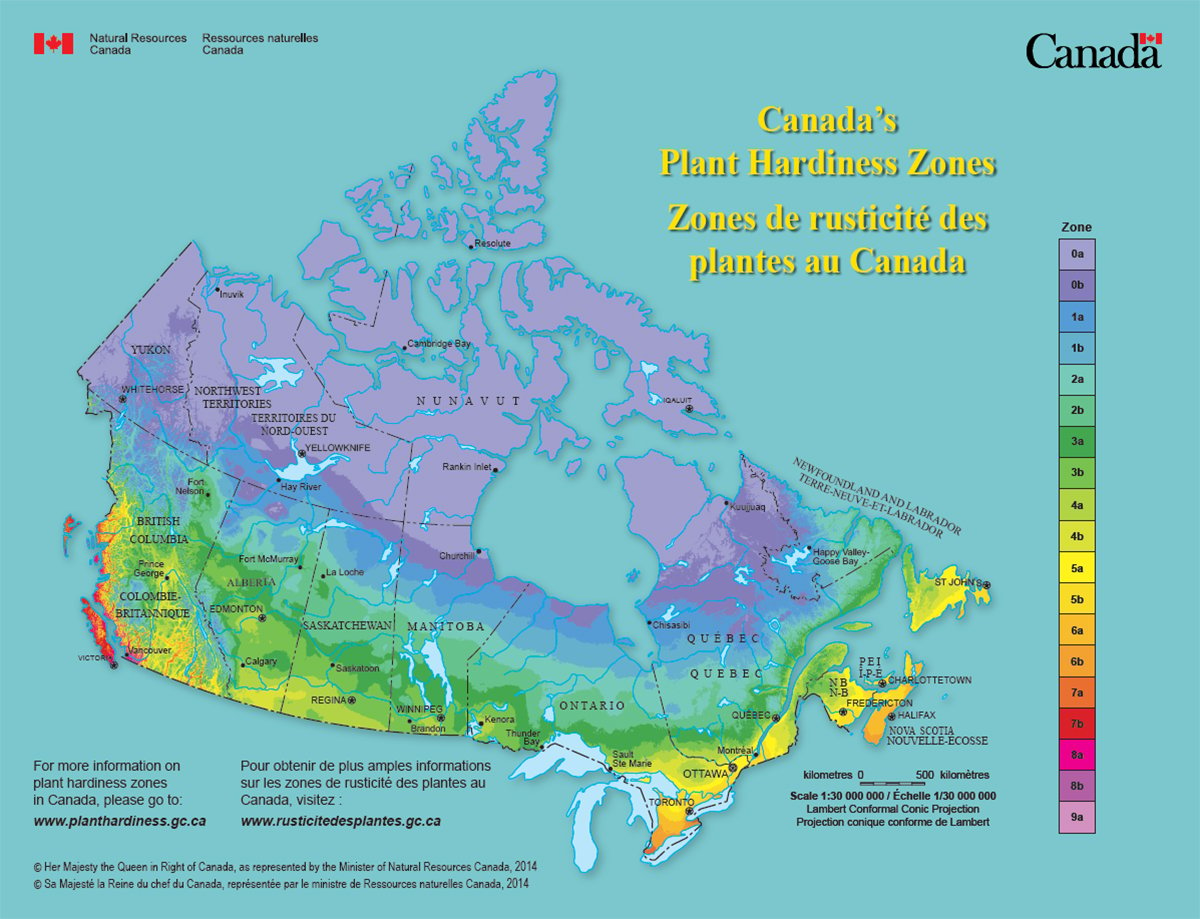Forthcoming legislation that will overhaul plant breeders’ rights in Canada will also introduce changes to a cash advance program for farmers.
Bill C-18, which is currently before the Senate, will make several modifications to the Advance Payments Program (APP), simplifying some applications and broadening the scope of eligible farms.
However, the changes will not increase how much money is available to producers and livestock operators as some producer groups have requested.
Producers can currently receive advances of up to $400,000 with the government covering interest on the first $100,000.
Read Also

Canada’s plant hardiness zones receive update
The latest update to Canada’s plant hardiness zones and plant hardiness maps was released this summer.
Farms are bigger, input costs are higher and $400,000 doesn’t go as far as it used to, said Rick White of the Canadian Canola Growers Association.
He said the limits can be changed without updating the legislation, and his organization will continue to raise the issue.
“The overall limit should be in-creased for the program to make sure the program continues to be relevant for farmers as times change,” he said.
The new legislation will introduce five-year agreements, which White said will reduce annual paperwork for producers.
Producer organizations now ad-minister the cash advance program, but they can issue advances only on certain commodities. Under Bill C-18, farmers will be able to receive advances on all commodities from a single administrator.
That means the CCGA, which currently administers oilseed, pulse crops, wheat, barley and durum, could issue advances on corn.
“The current model, it gets farmers into a situation where if they want an advance for corn and their canola, they have to come to two administrators, make two applications and pay two administration fees, and that doesn’t make sense from a farmer’s perspective,” said White.
“They’re opening it up to competition to give farmers more choice, more of a one-stop-shop concept.”
The National Farmers Union, which has opposed Bill C-18 from the onset, is concerned about plant breeders’ rights and farmers’ control of seed, as well as the changes to the APP, which open the program to corporations.
The new legislation will change the definition of a producer to include corporations if a majority of voting shares are held by Canadian citizens.
The NFU worries that foreign in-vestment groups will inflate farmland prices and increase competition.
White said many large family farms will take on a corporate structure for tax purposes.
“What the government is trying to do is make sure that farmers have access to the program and not be cut out of the program or limited in the program just because of their business structures that they’ve set up for tax purposes or succession planning or whatever the case may be,” he said.
The new legislation also opens the program to more livestock producers. Under the current rules, animals used as breeding stock weren’t eligible for cash advances.
“The administration is still learning how to fit livestock into what was a grain program, and the things that were added in here, including breeding stock, just show that they’re trying to make sure that they fit as many farms as possible,” said Ryder Lee of the Canadian Cattlemen’s Association.
Lee is watching another part of Bill C-18, which will raise the maximum penalties for minor violations of animal health regulations to $5,000, which includes transportation and traceability rules.
Details of how these new rules will be enforced aren’t yet clear, he said.
“How an act is done is different from the permissions that it is given, so it’s not different from concerns about other things,” he said.
“A lot of this act is permission giving. What will follow from that is regulation drafting.… How those are written will really tell the story about a lot of C-18.”














